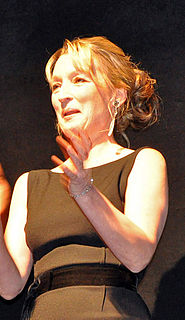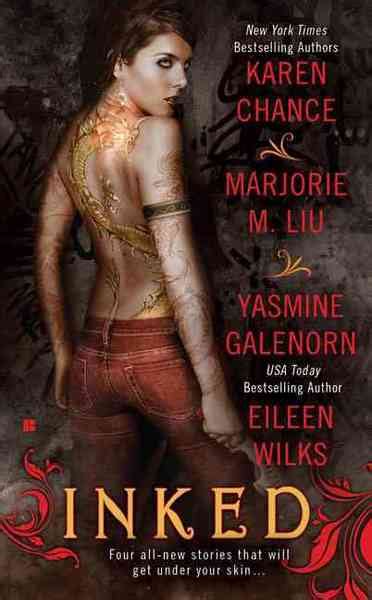A Quote by Frederick Buechner
God knows we have our own demons to be cast out, our own uncleanness to be cleansed. Neurotic anxiety happens to be my own particular demon, a floating sense of doom that has ruined many of what could have been, should have been, the happiest days of my life, and more than a few times in my life I have been raised from such ruins, which is another way of saying that more than a few times in my life I have been raised from death - death of the spirit anyway, death of the heart - by the healing power that Jesus calls us both to heal with and to be healed by.
Quote Topics
Another
Another Way
Anxiety
Anyway
Been
Both
Calls
Cast
Could
Could Have Been
Days
Death
Demon
Demons
Doom
Few
Floating
God
God Knows
Happens
Happiest
Heal
Healed
Healing
Heart
Jesus
Knows
Life
Many
More
My Life
My Own
Neurotic
Our
Out
Own
Particular
Power
Raised
Ruined
Ruins
Saying
Sense
Should
Should Have
Should Have Been
Spirit
Than
Times
Us
Way
Which
Related Quotes
For me, the times in my life when I've been single have been more formative and crucial than I could have imagined. I can cope, function and be happy on my own. I'm highly capable. That doesn't mean I don't like being with a partner, or that I don't feel more rounded when I'm with someone. But the times on my own have been so good.
The dignity to be sought in death is the appreciation by others of what one has been in life,... that proceeds from a life well lived and from the acceptance of one's own death as a necessary process of nature.... It is also the recognition that the real event taking place at the end of our life is our death, not the attempts to prevent it.
We need to be realistic and recognize that there will be times when we won't be sharing our faith out of an overwhelming sense of joy. When that happens, that's a call to look at our own devotional lives. Are we putting our hearts and minds before the Lord and under his cross everyday? Do we remind ourselves continually that we have been ransomed by the death of the Saviour? When we meditate on Christ's death for us, it doesn't mean that we never have struggles in our obedience, but it does help.
By 'coming to terms with life' I mean: the reality of death has become a definite part of my life; my life has, so to speak, been extended by death, by my looking death in the eye and accepting it, by accepting destruction as part of life and no longer wasting my energies on fear of death or the refusal to acknowledge its inevitability. It sounds paradoxical: by excluding death from our life we cannot live a full life, and by admitting death into our life we enlarge and enrich it.
Death is not the end, but the beginning of a new life. Yes, it is an end of something that is already dead. It is also a crescendo of what we call life, although very few know what life is. They live, but they live in such ignorance that they never encounter their own life. And it is impossible for these people to know their own death, because death is the ultimate experience of this life, and the beginning experience of another. Death is the door between two lives; one is left behind, one is waiting ahead.
This is the fear: death will come and we have not lived yet. We are just preparing to live. Nothing is ready; life has not happened. We have not known the ecstasy which life is; we have not known the bliss life is; we have not known anything. We have just been breathing in and out. We have been just existing. Life has been just a hope and death is coming near. And if life has not yet happened and death happens before it, of course, obviously, we will be afraid because we would not like to die.
My name is Cassie Palmer and I’ve cheated death more times than anyone has a right to expect. In the last two months, I’ve been shot, stabbed, beaten and blown up a few dozen times, and that doesn’t count all the magical ways I’ve almost been killed. I’d have been dead a long time ago if not for my friends, one of whom had just jumped off the cliff after me. I’d have been a lot more appreciative if he hadn’t pushed me first.
The first thing I would like to tell you about death is that there is no bigger lie than death. And yet, death appears to be true. It not only appears to be true but also seems like the cardinal truth of life - it appears as if the whole of life is surrounded by death. Whether we forget about it, or become oblivious to it, everywhere death remains close to us. Death is even closer to us than our own shadow.
We are left with nothing but death, the irreducible fact of our own mortality. Death after a long illness we can accept with resignation. Even accidental death we can ascribe to fate. But for a man to die of no apparent cause, for a man to die simply because he is a man, brings us so close to the invisible boundary between life and death that we no longer know which side we are on. Life becomes death, and it is as if this death has owned this life all along. Death without warning. Which is to say: life stops. And it can stop at any moment.
...night possessed us and the shadow of death encompassed us, for we had fallen into sin and lost the power of sight which was ours by God's grace and by which we were able to perceive the light that bestows true life. Night and death had been poured out on our human nature, not because of any change in the true light, but because we had turned aside and no longer had any inclination towards the life-bearing light. In the last times, however, the Giver of eternal light and Source of true life has had mercy upon us.
For years, I have been stalked by a bad reputation. Actually, I have been pursued by people who have regarded me as the 'Death and Dying' Lady. They believe that having spent more than three decades in research into death and life after death qualifies me as an expert on the subject. I think they miss the point.
When you have a baby you start thinking of death cuz' you see the opposite of life. I've calmed down now but for the first or two years, I kept thinking: "Oh my God, if I die what's going to happen to the child?" And you realise how vulnerable they are, but how critical your own life is because they're so dependent on you. You do feel your own mortality. I kept saying to myself: "OK, when they're 18, I'll be 'x'; so if they get married at 30, I'll be'x'will I get to see grandchildren?" So, since they've been born I've been thinking about death the whole time.
Assurance grows by repeated conflict, by our repeated experimental proof of the Lord's power and goodness to save; when we have been brought very low and helped, sorely wounded and healed, cast down and raised again, have given up all hope, and been suddenly snatched from danger, and placed in safety; and when these things have been repeated to us and in us a thousand times over, we begin to learn to trust simply to the word and power of God, beyond and against appearances: and this trust, when habitual and strong, bears the name of assurance; for even assurance has degrees.





































